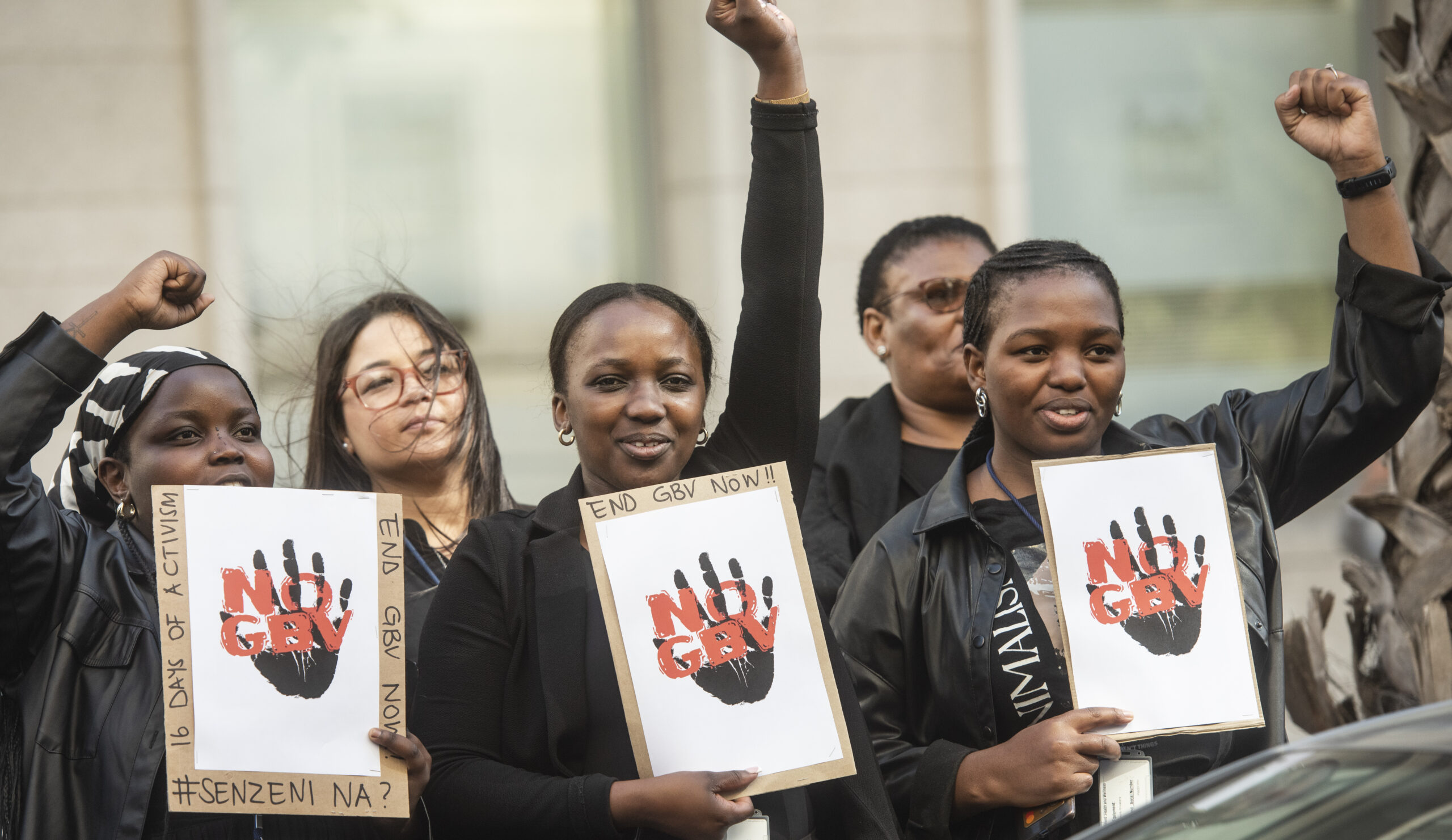Monday marked the last day of 16 days of activism in the country. While the campaign was designed to raise awareness of the negative impacts of violence and abuse on women and children, experts, activists, and researchers believe that more, especially at the private sector level, can be done to mitigate and eradicate it.
“I’m not entirely sold on the whole idea of 16 days,” Advocate Bernadine Bachar, director at the Saartjie Baartman Centre for Women and Children in Cape Town says, adding, “Because it is an easy pass for policymakers and politicians to say we’re going to be concentrating on gender-based violence for 60 days and then kind of revisit it a year later.”
In December 2024, the South African Police Services (SAPS) and activism social media group, Women For Change released the 2023/2024 crime stats, identifying that femicide had surged by 33.8% in one year. According to SAPS 5,578 women were murdered between April 2023 and March 2024, a hike from 4,169 women in 2022/2023.
The South African Medical Research Council (SAMRC) Gender & Health Research Unit also released a report in October stating that 60% of women murdered in 2020/21 were killed by an intimate partner, an increase from previous years.
The report further noted that convictions had also dropped, with fewer than one in five intimate partner femicide cases resulting in a sentence. The study shows that a woman’s chance of receiving justice significantly decreased, with more cases of unidentified perpetrators.
Loading...
“Femicide is preventable. Yet, in South Africa, reports of another femicide have become the new normal. We must address this crisis with urgency, especially given the sharp rise in intimate partner femicide during the pandemic,” Professor Naeemah Abrahams, Chief Specialist Scientist at the SAMRC Gender & Health Research Unit said in the report.
“The fact that conviction rates are so low, and the number of unsolved cases is growing, should be a resounding call to improve our justice system’s response to gender-based violence.”
Bachar says that this also has a dire effect on the economy.
“Gender-based violence and its impact on survivors has an impact on the economy when it comes to our health system, our police system, our workforce, our children and their placements in schools and ability to carry on with their schooling. It affects every aspect of a woman’s life. And if we don’t get to grips with eradicating [it], we are going to be damning the next generation to be sitting exactly where we’re sitting at the moment.”
KMPG has estimated in their Too Costly to ignore – the economic impact of gender-based violence in SA report that the economic impact of that violence is between at least ZAR28.4 billion ($1.5 billion) and ZAR42.4 billion ($2.3 billion) in 2013, representing 0.9% and 1.3% of GDP respectively.
GBV researcher Gorata Chengeta states that although she agrees that the monetary value of it is there, there are also costs that cannot be quantified.
“As someone whose research and work is focused on the experiences of survivors and what happens after GBV, it’s really important to remember the human cost of GBV to people’s individual lives, which cannot be quantified in monetary terms, but also the conversations about the economic impact are also related to that human cost,” Chengeta tells FORBES AFRICA.
Although there have been initiatives and programs from corporates that are centered on assistance regarding GBV, the question remains – is there more that can be done?
Experts believe that agency and urgency can help elevate the problem, especially when it comes to the involvement of the private sector.
Ngaa Murombedzi is the Southern Africa Regional Advocacy and Policy Manager at AIDS Healthcare Foundation. She highlights that the intersection between GBV and HIV in South Africa needs to be confronted and says that it starts with policy.
“Private sector companies can have clear policies that speak against gender-based violence within the workspace; this looks like providing a safe environment for employees that encourages reporting any form of abuse without fear of retaliation,” she tells FORBES AFRICA.
“We know that stigma and discrimination continue to be the biggest contributing factors around gender-based violence and its perpetuation within our society in South Africa.”
Institutions like the Saartjie Baartman Centre for Women and Children have served 276,000 women and children over the last 25 years, and have offered job skills, entrepreneurial training, and psychosocial support.
However, Bachar notes that the unemployment rate is a lone indicative of how costly GBV is to the country.
“What the private sector can do is work with those of us that are in in the gender sector to perhaps free up 100 entry-level jobs,” Bachar adds.
“Let’s talk to supermarkets [for example], free up entry-level jobs for GBV survivors that are coming out of shelters; we can then start moving these women through the shelter system into jobs that can be empowering to them to actually put food on the table, get a sense of self-worth [and] move away from violence and the perpetrator.”
It been referred to as something that is paramount to a “pandemic that is crippling society, depriving women and children of their right to be safe and continue with their daily lives without fear of being murdered or raped, if not both” by South African President, Cyril Ramaphosa.
“The private sector often has resources to support other causes. They have corporate social responsibility causes and something practical that they can do with that money right now is to invest in funding shelters that support survivors and victims of domestic violence, because at the moment, there is a shortage of funding, and it’s a sector that does a lot of very important work,” Chengeta concludes.
Loading...
